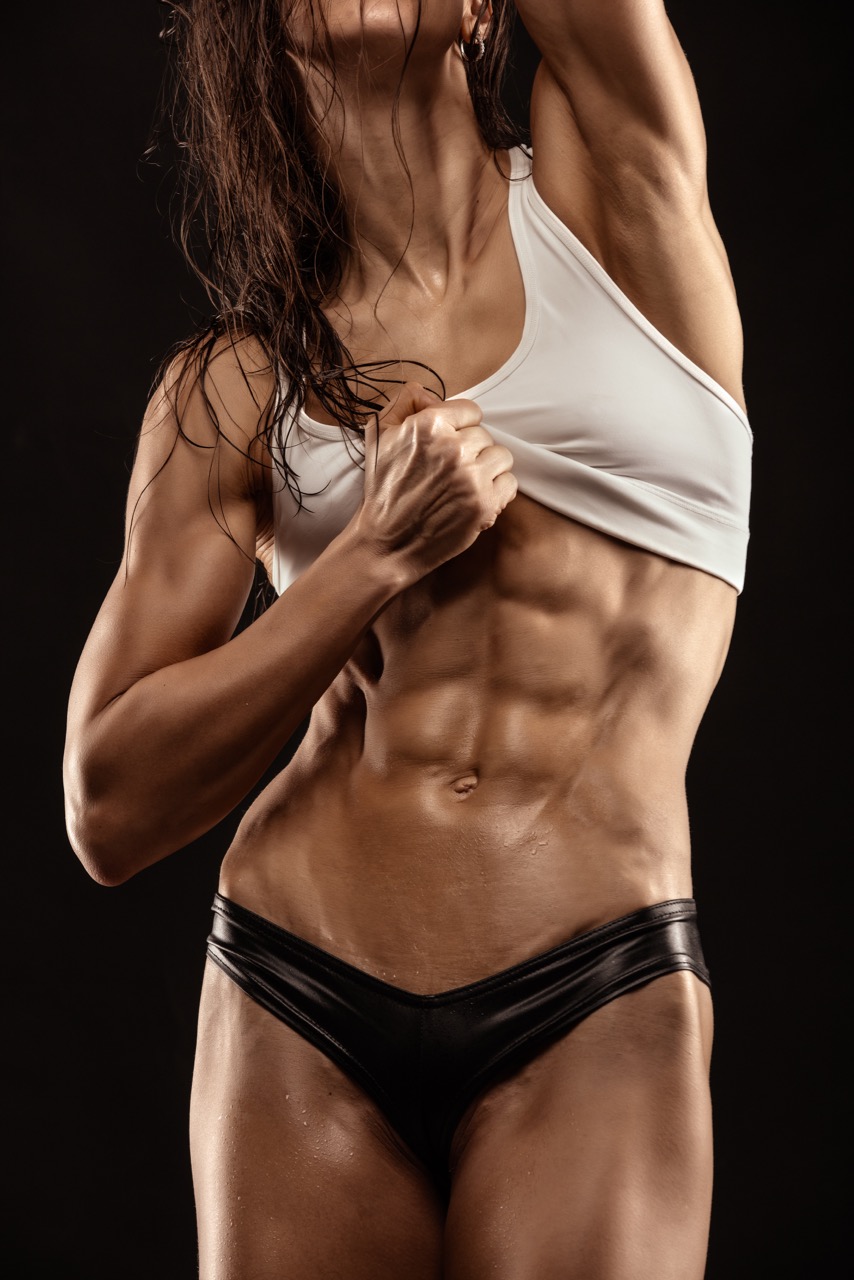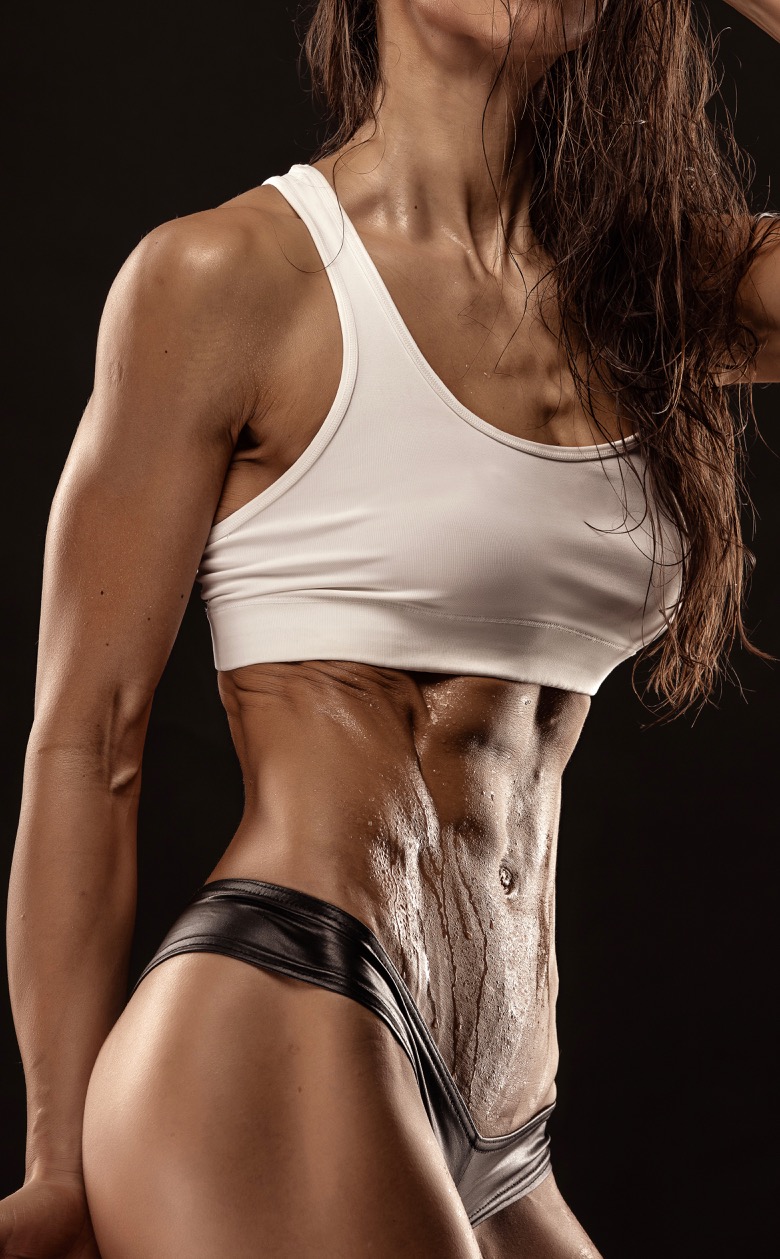Does Sweating Improve Fat Loss?

TIME TO SWEAT YOUR SUMMER WORKOUTS
Think increased sweating improves fat loss? Let’s correct that myth and show you how to account for increased heat and humidity when you take your summer training outdoors.
Losing flab faster is everyone’s goal for summer, but a common misperception remains that can not only knock your training efforts off track but also set you up for some serious health risks. It all boils down to a misunderstanding about some of the basics regarding how the body regulates heat, especially when you exercise. Because summer means outdoor activities in greater heat and humidity, here’s what you need to know to more effectively train without adversely affecting the quality of your workout.
Ever see those folks at the gym with rubber or plastic suits that are worn as a means of increasing sweat production to further goose weight loss? Boy, are they doing everything wrong! Let’s see why.
The physical activity (exercise) you do is powered by the stored nutrients in your body consumed during a previous meal(s), most likely from carbohydrate sources. Any activity you do allows you to burn off extra calories, which is why we do exercise to promote fat loss. When you engage in physical activity, heat is produced by your body (i.e. thermogenesis), which then has to eliminate it to regulate your body temperature and prevent overheating. That heat is transported to the skin and released with small amounts of water, which is visible as sweat. Here’s an important point to remember: The process of sweating itself doesn’t release the heat; it’s the evaporation of sweat that cools the body. That’s one reason that when you step out of a pool or the ocean and it’s windy, you feel suddenly chilled. That is, until you’ve dried off. Anything that interferes with the evaporation process—hello, rubber and plastic skin suits, which contribute to the problem by making you sweat more—can dampen your body’s efforts to cool itself, effectively causing you to overheat more quickly. Sudden rises in body tem-perature can trigger conditions such as heat cramps, heat exhaustion, or worse, heatstroke, which requires medical attention. Just don’t wear garments designed to make you sweat more; they don’t increase the amount of work you do but can interfere with your body’s ability to regulate heat. You can see how training in humid environments can also affect your body’s ability to release heat. With high humidity, there’s already a high degree of moisture in the air, so very little evaporation can occur. Instead of cooling off, here too heat begins to build in your body, and it can reach dangerous levels as cited above. What’s more, as you sweat more and more, your exercise performance can quickly start to suffer because of dehydration. (Hence that advice about drinking lots of water.) Remember, sweating in and of itself is a sign the body is trying to lose heat. There are no calories in water (sweat), so increasing sweat when it’s not the by-product of work (exercise) simply contributes to overheating and dehydration. In fact, you can sit all day in a sauna (though it’s not advised) and sweat buckets, but that doesn’t mean you’re losing anything but water weight, which will quickly bounce back as you replenish those necessary water stores. Increased sweat production is never a goal of a workout, and it shouldn’t be encouraged. Hence, your summer
sources. Any activity you do allows you to burn off extra calories, which is why we do exercise to promote fat loss. When you engage in physical activity, heat is produced by your body (i.e. thermogenesis), which then has to eliminate it to regulate your body temperature and prevent overheating. That heat is transported to the skin and released with small amounts of water, which is visible as sweat. Here’s an important point to remember: The process of sweating itself doesn’t release the heat; it’s the evaporation of sweat that cools the body. That’s one reason that when you step out of a pool or the ocean and it’s windy, you feel suddenly chilled. That is, until you’ve dried off. Anything that interferes with the evaporation process—hello, rubber and plastic skin suits, which contribute to the problem by making you sweat more—can dampen your body’s efforts to cool itself, effectively causing you to overheat more quickly. Sudden rises in body tem-perature can trigger conditions such as heat cramps, heat exhaustion, or worse, heatstroke, which requires medical attention. Just don’t wear garments designed to make you sweat more; they don’t increase the amount of work you do but can interfere with your body’s ability to regulate heat. You can see how training in humid environments can also affect your body’s ability to release heat. With high humidity, there’s already a high degree of moisture in the air, so very little evaporation can occur. Instead of cooling off, here too heat begins to build in your body, and it can reach dangerous levels as cited above. What’s more, as you sweat more and more, your exercise performance can quickly start to suffer because of dehydration. (Hence that advice about drinking lots of water.) Remember, sweating in and of itself is a sign the body is trying to lose heat. There are no calories in water (sweat), so increasing sweat when it’s not the by-product of work (exercise) simply contributes to overheating and dehydration. In fact, you can sit all day in a sauna (though it’s not advised) and sweat buckets, but that doesn’t mean you’re losing anything but water weight, which will quickly bounce back as you replenish those necessary water stores. Increased sweat production is never a goal of a workout, and it shouldn’t be encouraged. Hence, your summer  workouts should emphasize ways to keep cool so you can complete your session without adverse effects. Environmental conditions may make that tough, but you should do what you can by moving a workout indoors when warranted, choosing the early morning or late evening to exercise outdoors, wearing light-coloured, loose clothing so your body more easily can breathe and release heat, drinking plenty of water and more frequently, pulling back on intensity or duration if warranted. And one more thing while we’re on the topic of what dumb folks do at the gym. After a hard workout, your body temperature is likely elevated as you likely have sweat marks all over your shirt. The last thing you want to do now is sit in a sauna or hot tub!
workouts should emphasize ways to keep cool so you can complete your session without adverse effects. Environmental conditions may make that tough, but you should do what you can by moving a workout indoors when warranted, choosing the early morning or late evening to exercise outdoors, wearing light-coloured, loose clothing so your body more easily can breathe and release heat, drinking plenty of water and more frequently, pulling back on intensity or duration if warranted. And one more thing while we’re on the topic of what dumb folks do at the gym. After a hard workout, your body temperature is likely elevated as you likely have sweat marks all over your shirt. The last thing you want to do now is sit in a sauna or hot tub!

